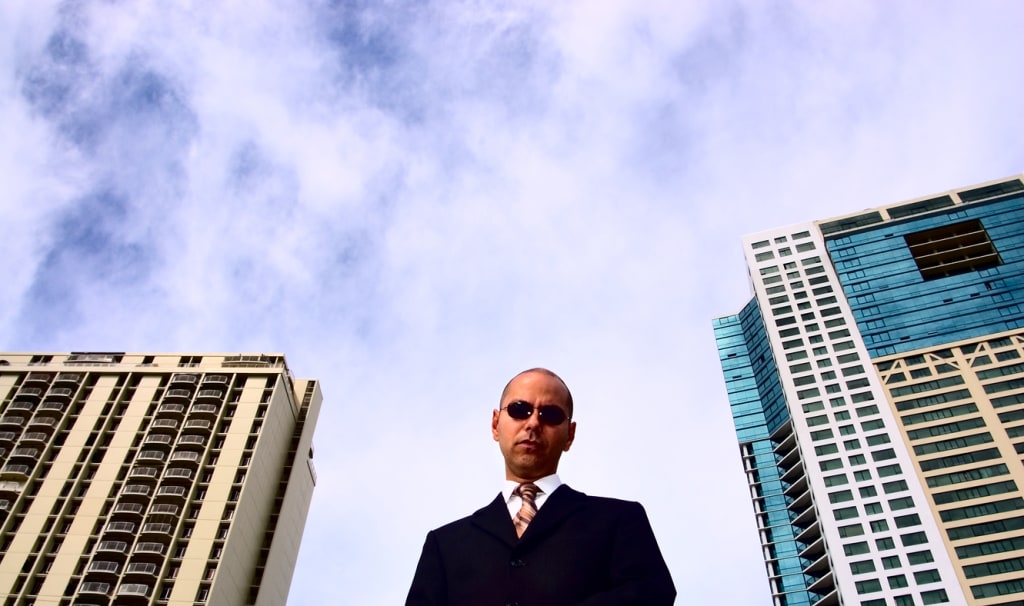Not Like a Business
Running a Country Like a Business is a Bad Idea

Leading up to the last election, a lot of people said things along the lines of, "Trump will be good because he's a businessman, not a politician, and he'll run the government like a business." Somehow, enough people were confused enough to think this was a good idea, and enough of them voted that way, so with the help of the winner-take-all electoral vote distribution in all but three states, Trump managed to win by the largest losing margin in American history. It was a big margin. Really big. And he lost by it, but the Electoral College turned that around and gave him the White House anyway.
This isn't the first time the loser was elected, obviously. It's just that, previously, the margins tended to be a few thousand votes, usually within the margin of error for the count, and not three million plus.
Electoral College reform is obviously long overdue. It's unlikely we'll ever get rid of the college, since that would require a constitutional amendment to be passed by Congress, and then ratified by three-quarters of the states. Since the Electoral College currently allows the less populous states to dictate the results, it's unlikely to ever be ratified, even if you could convince Congress to pass such an amendment.
It might, however, be possible to convince the state legislatures to start apportioning electoral votes based on the popular vote in their state. That would probably depend upon who was in control of the legislature, and whether their candidate had just won all of the state's electoral votes with only 51% of the popular vote, or lost all of them with 49%. If electoral votes had been apportioned in enough states, there's a good chance so many Americans wouldn't have to wake up every day, look at their Twitter account and think, "What did that idiot say this time?"
In any case, Electoral College reform isn't the subject of this essay. The subject is whether a government should be run like a business. My own opinion is that it should not, that attempting to do so is foolish and dangerous.
It's been done before, certainly. Generally, things have not gone all that well. Hitler ran Germany like a business. Mussolini tried to run Italy that way. Stalin ran the Soviet Union that way. Calvin ran Geneva that way. Cromwell ran England that way.
You may be noticing a pattern here. When people say government should be run like a business, they always seem to overlook a salient point. Businesses are dictatorships. One person is the boss, and everyone else does what they're told. You can complain, but the boss is under no obligation to listen, or to fix the perceived wrong. The only thing that matters is the bottom line. If the business has six employees, and the boss realizes it will run almost as efficiently with five, somebody gets fired.
Given a choice, if the company offers pensions (which very few do today), the most likely to be fired is the guy who hasn't quite vested. One of the things thinking about the bottom line encourages is a belief that a retired employee is a drain on the company, and everything possible should be done to make sure that drain doesn't collect his pension any longer than absolutely necessary.
In fact, nearly all businesses today have eliminated pensions and replaced them with 401(k) plans. Companies love 401(k)s, because the minute the employee retires, the company has no further financial obligation. With a defined benefit plan, the company may be paying a former clerk up to half his salary for the next thirty years and never getting an additional minute's work out of him. With a 401(k), all they have to do is match the employee's contribution (up to an arbitrary maximum set by the company) while he's working. Once he stops working, there's nothing more to match.
It's not a coincidence that people who think the government should be run like a business want to "privatize" Social Security. Even though retirees paid into Social Security their entire working lives, there is always a certain percentage who manage to live long enough to get all of their money back. After that, Social Security turns into a true pension, with the money coming out of the general fund, rather than the trust fund.
We're supposed to ignore the little detail that the inadequate trust fund results from Congress "borrowing" from it over the years, with no intention whatever of paying it back. There's a term for that if you're not in Congress, but politicians just think of it as a "slight delay" in paying back a loan.
How responsible is a business owner to his investors? That all depends on how much stock he retains once it starts trading publicly. If he kept 51% or more, he can tell his board of directors, and his stockholders, to go screw themselves and there isn't a damned thing they can do about it. About all they can do is hope that he'll be a successful businessman.
If you put a businessman in charge of government you get, well, more or less what we've got. The more time that passes, the more obvious it becomes that our "leader" doesn't have the slightest idea what he's doing, and doesn't actually care about the people who live in his country. It's questionable whether he cares about anyone but himself. He's something of a throwback to the 19th century robber barons, who honestly seemed to believe that the law simply didn't apply to them.
The Arpaio pardon is a blatant expression of that self-centered attitude. He likes the ex-sheriff because he doesn't actually believe in civil rights for ordinary people. There's even some question as to whether the pardon was legal. Presidents have nearly unlimited pardon power, but this seems a bit too much like a political leader who has his henchmen commit a crime, then simply pardons them if they're caught. Arpaio believed he could simply ignore the Constitution in his monomaniacal pursuit of "illegals," and Trump has essentially told him that he was right.
This is because a major problem with any business leader is that he thinks of himself as the boss. That's fine for a company. Businesses do need someone who can make ultimate decisions. And business decisions generally don't affect that many people.
A presidential decision, on the other hand, can affect millions of people, or even billions. A mistake in dealing with, say, North Korea, could bring about a war that would devastate much of Asia. When you're dealing with crazy people, it's helpful if they're only on one side.
Fundamentalist Christians think Trump is great, of course. Why is hard to tell. It's certainly not his lifestyle, which tends toward the hedonistic. Nor is it his morals. So far as anyone can tell, he doesn't seem to have any. But they do like his tendency to act arbitrarily, to be the boss, even though the President of the United States is not now, and never has been, the boss. He's really just the top employee. Congress and the courts both hold equal, and generally superior power under the Constitution.
But the religious right likes the idea of a boss. They'd prefer it be Jesus, naturally, but they'll settle for a man and argue he's preparing the way. Greek and Roman paganism could be seen as encouraging democratic principles, but Christianity merely tolerates them. The Christian ideal is a dictatorship, where everyone knows his place, and obeys the orders of his natural superior.
The United States, never forget, came about in defiance of Christian teachings, not in obedience to them. The New Testament is quite clear that monarchs are placed over their subjects by God, and that rebelling against an earthly king is rebellion against God.
A businessman-president naturally thinks along similar lines. He believes he should be obeyed. Someone tweeting an anti-Trump tweet is likely to find himself on the receiving end of a presidential tweet barrage that would do a two-year-old proud.
If there's anything a President needs to be ready for, it's that people are going to tell him, "No." He's not the smartest human being ever. I'm not sure who was, but it's certainly not him.
No, the last thing we need is someone trying to run the country like a business. Businesses don't care about people, and caring about, and for, their people is really the only reason we even have countries.
About the Creator
J.T. McDaniel
Writer, editor, actor, director, audiobook narrator, and senior sex symbol. No, really, I'm very hot. Stop laughing, dammit!






Comments
There are no comments for this story
Be the first to respond and start the conversation.